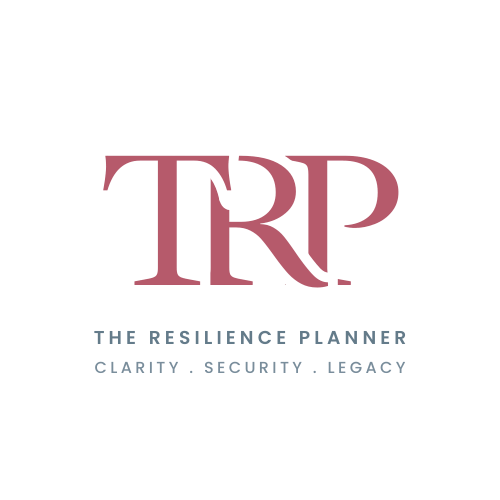Retirement is more than just saving up
For many, retirement seems like an end goal that is never in sight. Many are still struggling with monthly household and emergency expenses for their children and parents. And so, retirement planning is placed as the least of their priorities.
However, it doesn’t matter if one plans for retirement or not, retirement will surely come one day. The question is, when the day comes, can the person really retire? Most might have some savings here and there. and the majority of Singaporeans will rely on the CPF savings as their main source of retirement income. While the CPF may have helped many accumulated substantial savings, without proper planning in place, many people may have to delay their retirement plans or cut back on their savings. Retirement planning is also a holistic journey; it involves not only finances, but also health and emotional well-being, as well as ensuring active social engagement. In gist, true retirement readiness is more than just money.
Section 1: Financial Preparedness – But Not Just Savings
Saving for retirement is essential but it’s only the first step, or one part of the puzzle. Beyond hitting a numerical target, retirees must also consider:
Inflation & Rising Costs of Goods & Services
Most people complain how much the price of goods and services have risen over the years. Yet, they did not think of how much more it will increase in the next 10 to 20 years. Especially once they stopped working, the expenses will still be incurred. For some retirees, they may have 30 or 40 years in retirement. Imagine how much will be required?!
Healthcare Expenses
While Medisave, forming part of our forced savings, can help partially, it doesn’t cover for everything. As we age, the likelihood of needing long-term care can potentially become a major financial burden. When people retire without planning for it, these can easily wipe out their hard-earned savings.
Debt Freedom
Without doubt, entering retirement with new mortgages or credit card dents adds to unnecessary stress.
Estate Planning
Planning for getting wills, trusts, and beneficiary designations done can ensure assets be distributed as intended. It also minimises confusions and family disputes.
A financially secure retirement is not just about accumulation – it’s about smart, sustainable and prudent management of wealth and assets.
Section 2: Health – The Foundation of a Fulfilling Retirement
Money means little without good health. It’s also important to ensure that one has the physical and mental wellness even after retiring. Unlike when they are in employment, some companies may arrange for free health screening, or encourage their older workers to take care of their health. Once they stopped work, they may eventually cut back on social engagement and physcial activities. During retirement, maintaining physical wellness and mental sharpness are essential to ensure a fruitful retirement life. This can be achieved through regular exerice, a balanced diet, and preventive screenings. Activities such as reading, puzzles, and learning new skills can also help with prevention of cognitive decline.
Also, one common area that people tend to overlook is the planning for long-term care needs. Many underestimate the cost of assisted living home care. This is even more crucial if the retirees are without insurance and savings.
Investing in health is another part of planning towards happy retirement.
Section 3: Emotional & Psychological Readiness
Leaving a career or stepping down from a job position can trigger an identity crisis.
Work provides structure; retirement requires one to create new rhythms. When not planned properly, the person may feel a loss of routine and purpose. Without meaningful activities, days can also feel empty. Sometimes, it helps if pre-retirees can transit gradually (eg. by taking up part-time jobs) and setting new goals to ease the shift.
Retirement is also a mental adjustment that is just as important as the financial one.
Section 4: Social Connections & Community
Isolation is a silent risk for retirees. Sometimes, retirees may find it difficult to do regular meetups with friends, family or former colleagues. They may also find it intimidating to join clubs or organisations, or classes, and would resort to staying at home. Losing the sense of belonging, or sense of contributions (often achieved from work) can affect the retirees psychologically. For some, they may be able to switch to doing consulting or mentoring work to keep them engaged professionally. For others, they may want to find ways to maintain strong social ties, because these have been linked to longer, happier retirements.
Section 5: Finding Purpose & Fulfillment
Retirement is an opportunity to reinvent yourself. For some, they may pursue activies such as travel, arts or hobbies, or any activities that they may not have the chance to do when they were working. Some may also do teaching, volunteering or supporting causes that they care about. There may also be some retirees who would launch small businesses, or freelance careers for fulfillment and not just income. We call it “rewirement”. Retirees with purposes in retirement will find the joy which money alone may not be able to fulfill.
Conclusion
Retirement is not just about numbers; it’s a life transition that requires planning and preparation – in finances, health, social relationships and purpose. Planning retirement holistically will ensure a more comfortable and enriching retirement. If you haven’t start planning your retirement, I invite you to start thinking, “Beyond your savings, what kind of life do I want when I stop working?” The answer will kickstart your journey towards a happy retirement.
Disclaimer:
The views and opinions expressed in this article are those of the author, and do not reflect the official position of any agency, organization, employer, or company. This content is for general knowledge only and does not constitute financial advice. Please consult a licensed financial advisor for personalised recommendations.
About the author:
Cammie currently holds a financial advisory license for distribution of insurance and collective investments scheme products. She also has an Estate Succession Practitioner certification. Trained as an Architect and being a brain tumour survivor, she identifies herself as The Resilience Planner in Personal Finance. Her approach to financial advisory is consultative. She encourages her clients to be participative and ask her questions. She believes that because Personal Finance is personal, she works with her clients to cater for tailored solutions to suit each individual’s needs and goals in life.







